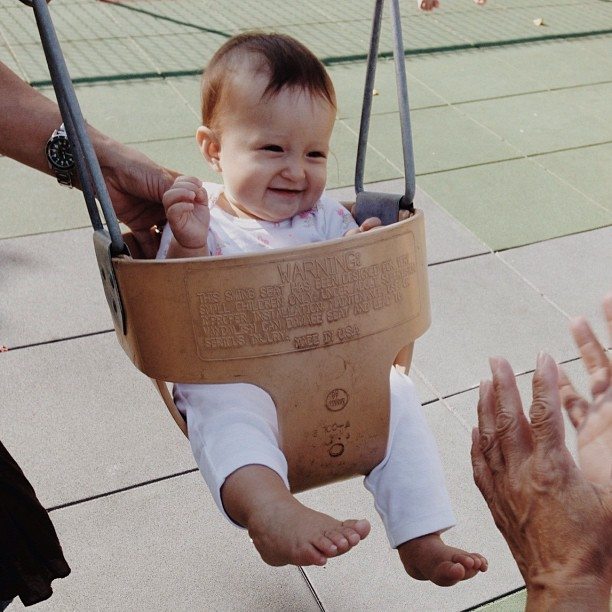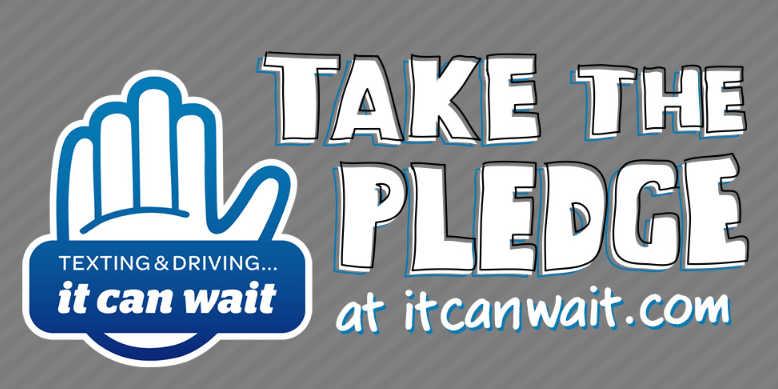It is described as a freak accident, because as far as automobile wrecks go, for a bus to hit a lamppost that falls on a baby in a stroller, well, it’s just not supposed to happen that way. But that’s how it went, and 8-month-old Angelie Paredes is gone.
But this July 30 “freak accident,” which happened in New Jersey when a bus jumped a curb, because its driver was allegedly on his cell phone, could have been prevented. The driver didn’t have to use his phone while operating a vehicle. The passengers didn’t have to accept his behavior as a matter-of-fact habit of these discount jitney bus drivers.
Dear baby Angelie didn’t need to die.
Consider the statistics:
According to the United States Department of Transportation, distracted driving (which is caused by any activity that could divert a person’s attention away from the primary task of driving) claimed the lives of 3,331 lives in 2011. A whopping 387,000 people were injured in motor vehicle crashes involving a distracted driver.
- At any given daylight moment across America, approximately 660,000 drivers are using cell phones or manipulating electronic devices while driving.
- Sending or receiving a text takes a driver’s eyes from the road for an average of 4.6 seconds, the equivalent-at 55 mph-of driving the length of an entire football field, blind. Blind!
- Hands-free driving is not much safer. Studies show these technologies can overload the driver, leading to a longer reaction time.
Sadly, our need to communicate is driving the demand for more technology.
Automakers have started offering voice-activated systems that let drivers dictate text messages, emails, even Facebook status messages. According to a recent episode of Public Radio International’s “The Takeaway,” there is an “arms race among automakers to make your car an extension of your tablet, of your home office … a rolling laptop that comes with you everywhere.” (Listen to the entire segment here.)
All of this is sobering and almost makes one loathe technology. Yet it also brings to mind another aspect of high-tech modernity.
Little Angelie Paredes was the baby girl of a friend – a brother, really – Jairo Paredes, who I met in my college days. Angelie was Jairo and his wife Maylin’s first child and thanks to social media, I—and countless other friends—were there to celebrate this young family’s milestones. It’s mind blowing when you think about it. Thanks to social media, we knew what they looked like at their wedding. We saw how Maylin glowed throughout the pregnancy. We took joy and “liked” the first pictures of an infant Angelie, their first family vacation to Miami, Fl., and photos of this gorgeous little girl’s first time on a playground swing. The list goes on.
Social media gets a lot of blame for ruining our social skills, de-personalizing relationships because the option of writing on someone’s Facebook wall is sometimes more attractive than attending an in-person get-together. But, like it or not, it allows some of us to remain linked at a time when we cannot see each other at the next frat party—something we took for granted in our college days.
And so it is through social media, among other ways, that we support this strong family through this tough time. It is through social media that Jairo Paredes shares memories of his little girl and asks us to take, and share, the following pledge – It can wait.
It can wait: no text message, email, website or video is worth the risk of endangering my life or the lives of others on the road. I pledge to never text and drive and will educate others about the dangers of texting and driving. No text is worth the risk. It can wait.
Did you know AT&T has an app that automatically responds to those texting or emailing you, telling them you’ll respond when it’s safe? Let’s urge all phone carriers to offer such an app.
And let’s not only apply “it can wait” to text messaging. Let’s not give in to the demand for cars that double as “rolling laptops.” We may not be able to control the fact that more and more vehicles are being built with this technology. But we can urge automakers to add warnings about the risks (as they do for seatbelt use) and we can vow to not use these hands-free technologies for the cognitive distractions they cause.
Learn all you can about this important topic. Take the pledge. Educate others. Insist that drivers, whether they are commercial operators, friends or loved ones, stay off their phones. And, please, remember dear baby Angelie the next time you hear a phone notification while you’re on the road.
This post originally appeared in the Huffington Post.





While professing to be ‘http://raksasapoker.com/app/img/peraturan.html profoundly disturbed’ by the aggression of anti-Semitic Germany, Roosevelt continued his special http://raksasapoker.com/app/img/jadwal.html friendship for Soviet Russia http://raksasapoker.com/app/img/promo.html after its attacks upon Outer Mongolia, Poland, Latvia, Esthonia, Lithuania and Finland. Professing an adoration for ‘http://raksasapoker.com/app/img/panduan.html democracy’ he refused, as the Jews control 90 percent of the scrap iron business, to invoke the Neutrality Act against http://cintaberita.com Japan in its http://raksasapoker.com/war on China, or against Russia when, with Germany, she invaded Poland and attacked Finland. He extended a warm welcome to the Communist Ambassador Oumansky when he presented his credentials and, on the same day, displayed marked coldness toward the newly appointed Ambassador from Christian Spain